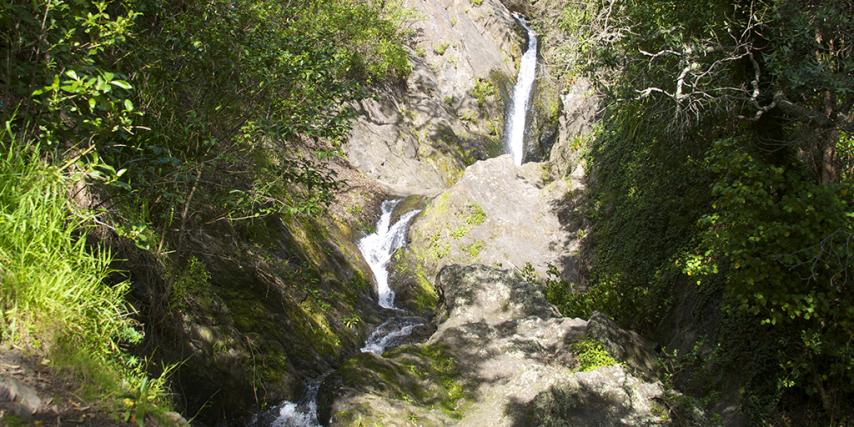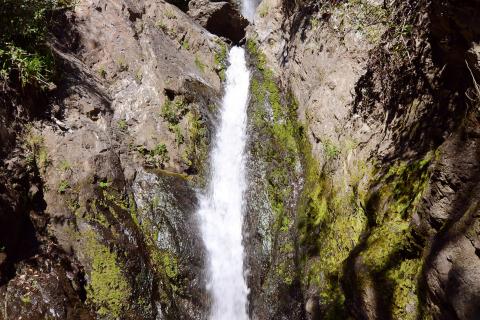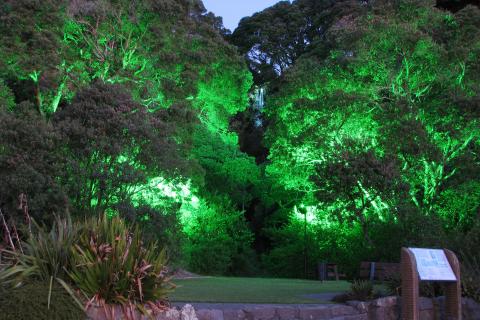
Wairere Falls
Toroa, the captain of the Mataatua canoe, had been instructed by his father Irakewa to look for three landmarks in his search for Kakahoroa (the ancient name for Whakatāne). They were Te Wairere (Wairere Falls), Te Ana o Muriwai (Muriwai’s Cave), and Te Toka o Irakewa (Irakewa Rock).
Te Wairere Falls was not only a sacred landmark to all of Mataatua, but was also a vital source of freshwater for the Ngāti Awa people living at Te Whare o Toroa Pa.
Another tradition associates this place with Ngahue, who visited here before the arrival of Mataatua. It is said that he found Moa here, which he preserved in calabashes and took back to Hawaiki.
The original anchor stone of the Mataatua wakla, Te Toka a Taiao, was sited where Te Wairere Stream meets the Whakatāne River (Ohinemataroa).
The falls are also associated with early industry. A flax mill was constructed in 1870, replaced by a flourmill in 1879, and later reconverted to a flax mill. The mill closed in 1909 and burnt down shortly afterwards.
The stream continued to supply water to the Whakatāne township until 1924. The site was made a scenic reserve in 1971 and remains one of the most beautiful and historically significant places in Whakatāne.
Contact Details
Toroa Street
Whakatane
New Zealand

